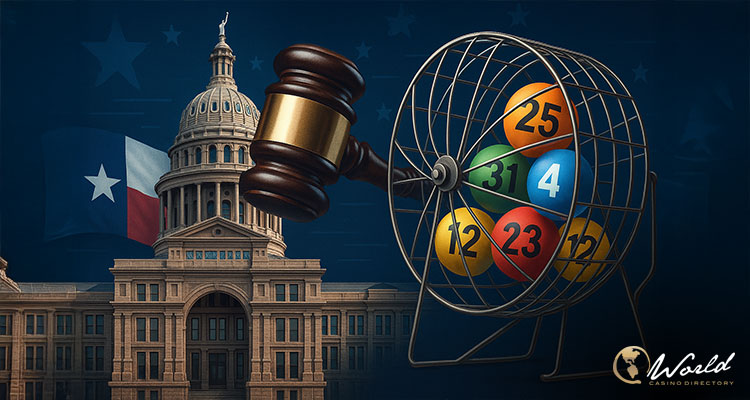A pivotal piece of legislation aiming to completely revamp Texas’ lottery system and dissolve its embattled oversight body has taken another step forward. Senate Bill 3070, which received unanimous support in the Texas Senate and was recently approved 10-4 by the House State Affairs Committee, proposes to abolish the Texas Lottery Commission and place lottery oversight under a different state agency.
The bill, championed by Sen. Bob Hall of Edgewood, responds to a series of high-profile controversies and investigations surrounding the Lottery Commission, including concerns over money laundering, improper conduct, and unsanctioned expansions of lottery operations.
“The criminal activities that have taken place came from within the lottery commission itself,” Hall stated during Senate discussions, as he accused the agency of enabling fraud and failing to prevent underage sales, according to Texas Scorecard.
If SB 3070 becomes law, oversight of the state lottery and charitable bingo operations will shift to the Texas Department of Licensing and Regulation (TDLR). In addition to assuming administrative duties, TDLR would enforce new rules governing ticket sales and transparency. These include mandatory annual audits by the State Auditor and expanded inspection authority granted to top state officials like the governor and attorney general.
Courier Services Face Full Ban Under Proposed Law
One of the bill’s most striking provisions is its approach to so-called courier services—third-party vendors that sell lottery tickets online. These companies have been under scrutiny following an $83.5 million jackpot won via a courier app earlier this year and a $95 million win in April 2023 resulting from a bulk-ticket purchasing scheme.
In response to mounting pressure, the Texas Lottery Commission banned couriers through an internal rule change in April. However, SB 3070 would solidify this ban in law, criminalizing both the operation and use of such services for buying or delivering lottery tickets.
Before the ban, these services had operated for years without clear regulatory oversight. According to Sen. Hall, the commission had long claimed it lacked the authority to regulate couriers—an assertion he described as a cover for fraudulent activity. “The Texas Lottery Commission ‘consistently lied’ about not having the authority to regulate the industry,” Hall said.
Not all agree with the commission’s actions. Rob Porter, chief legal officer at Lotto.com—one of the affected companies—said, “Regulated lottery couriers support integrity and support the operations and continued growth of the Texas Lottery.” His company has filed a lawsuit challenging the commission’s decision.
Oversight Shakeup and Tighter Restrictions on Sales
In addition to courier restrictions, SB 3070 introduces several reforms intended to enhance consumer protections and improve operational transparency. The proposed changes include:
- Capping purchases at 100 tickets per transaction
- Restricting retailers to a maximum of five ticket machines
- Prohibiting lottery employees and their family members from participating in lottery games
- Creating a Lottery Advisory Committee to provide external insight
- Mandating the public disclosure of internal meetings related to contracts and policy
These measures follow increasing alarm over the potential for abuse in bulk ticket purchases and the perception that the commission failed to prevent suspicious activity.
Lt. Gov. Dan Patrick has made reforming the lottery a legislative priority this session. He has personally visited printing facilities and commission offices in an effort to expose what he called “sweatshop” operations.
The bill also stipulates that the Sunset Advisory Commission conduct a focused review of the lottery’s existence in August 2027. If the Sunset Commission does not recommend its continuation, the lottery could be discontinued by September 2027.
Financial Implications and Next Steps
While the legislation could reduce fraud and bring tighter control over the lottery’s operations, it does come with a cost. According to a fiscal analysis, the bill could result in an estimated $52 million in lost revenue over the next two years, largely due to the elimination of courier-based sales.
Nonetheless, the urgency with which the legislation has moved through the Senate and House committee suggests momentum is strong. With the legislative session ending June 2, the bill is expected to reach the House floor soon.
Texas Lottery Commission spokesperson Steve Helm said the agency “respects the legislative process” and is ready to assist with a “smooth, seamless and successful transition” should the bill be enacted. The bill’s passage could mark the beginning of the end for the Texas Lottery Commission and signal a dramatic shift in how lottery games are managed and regulated across the state.



